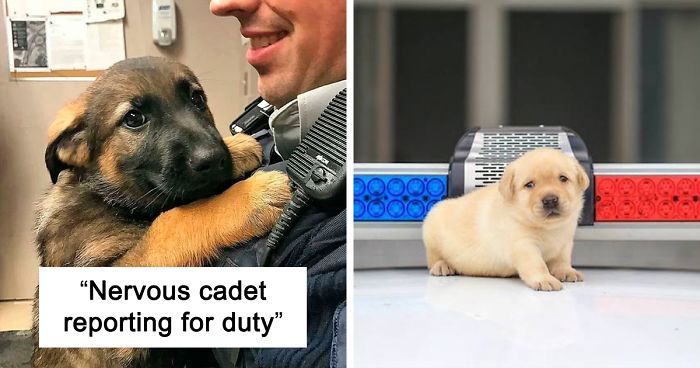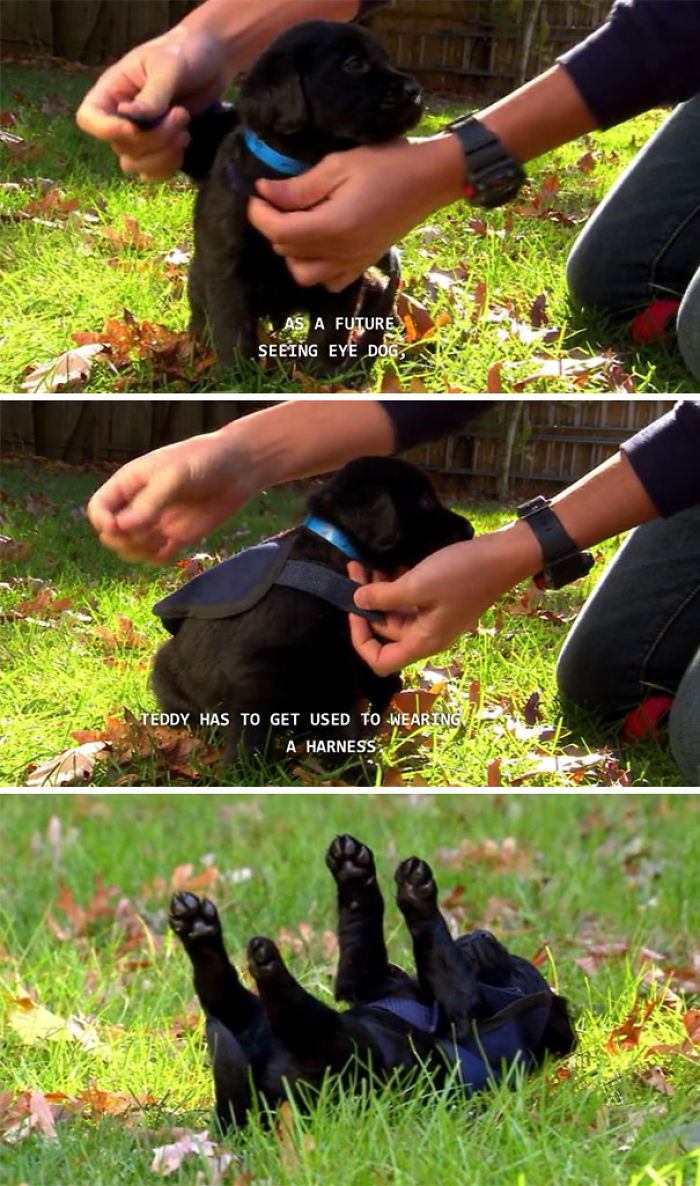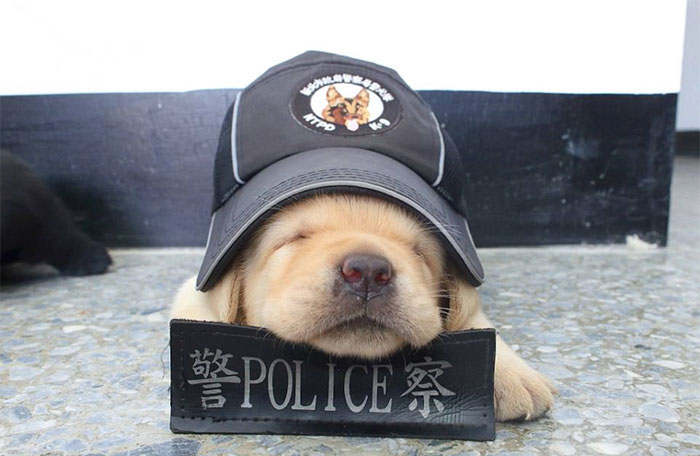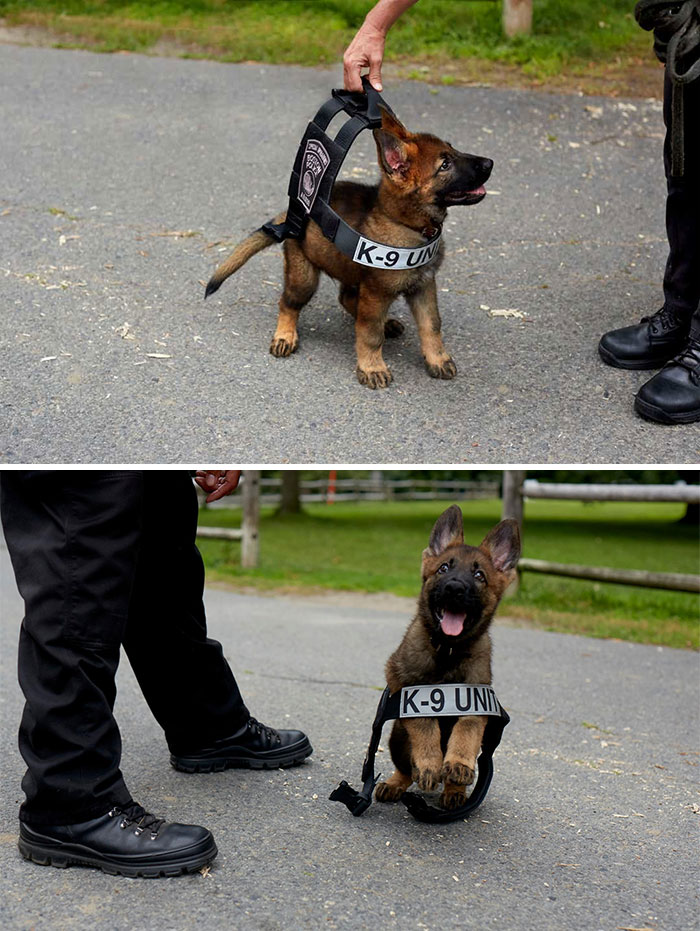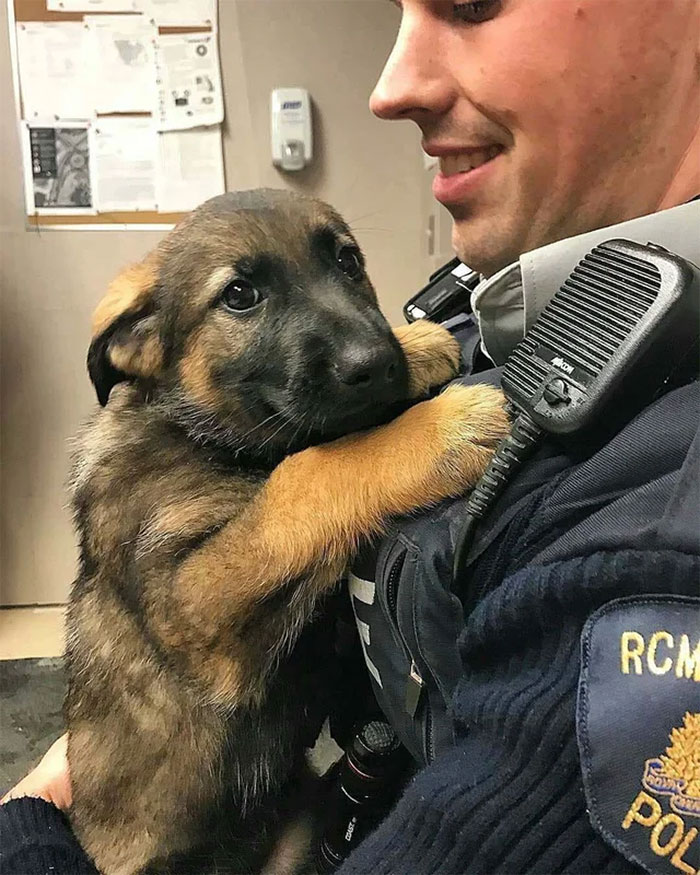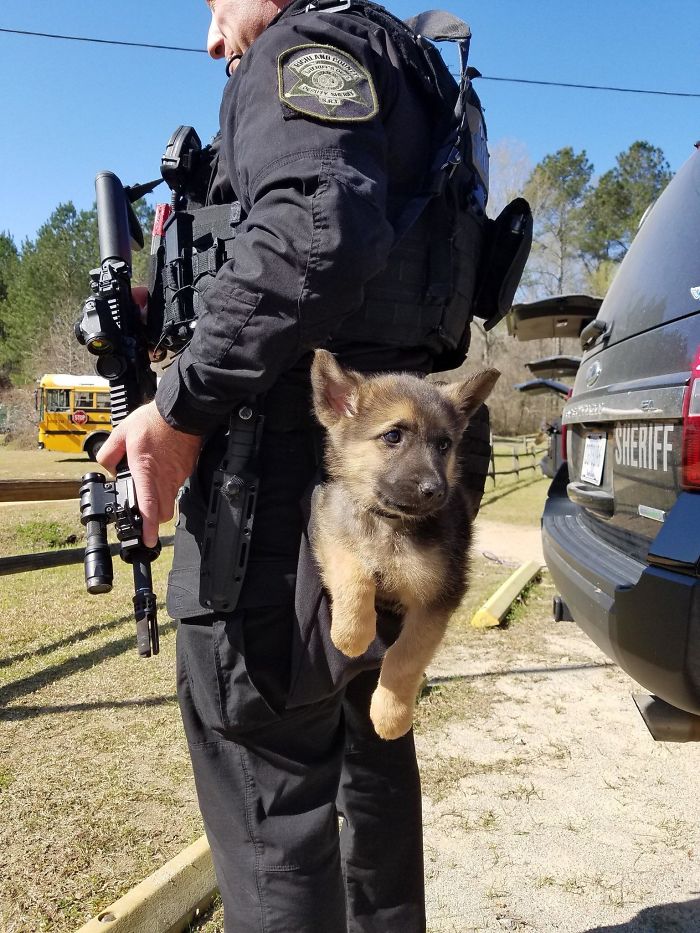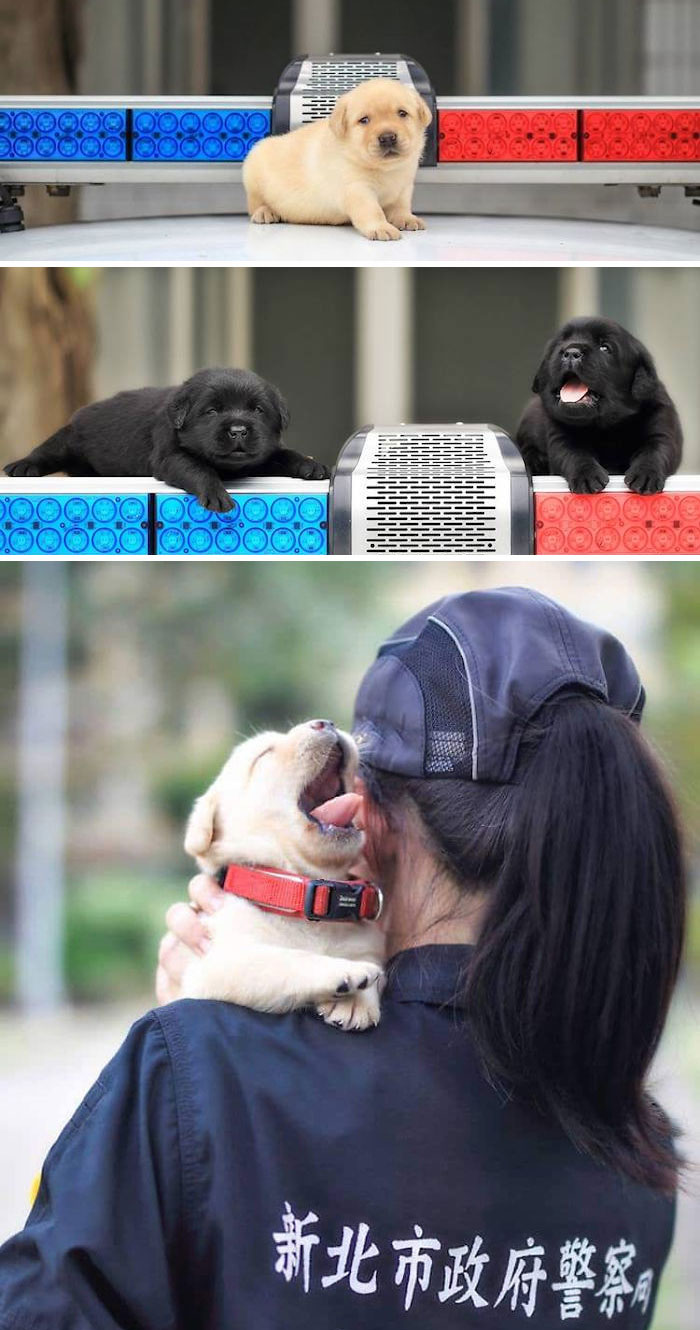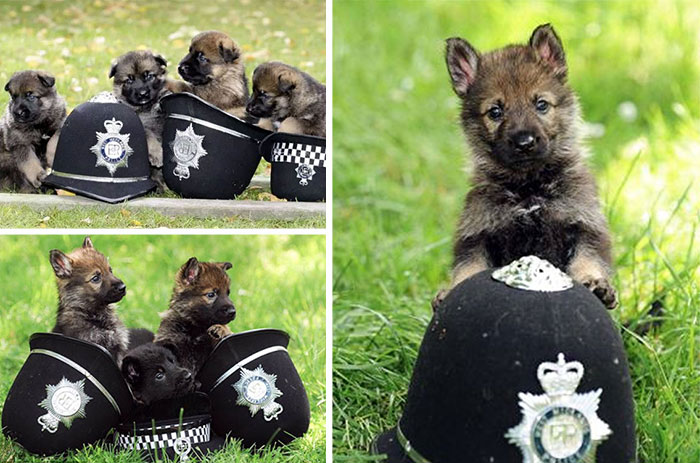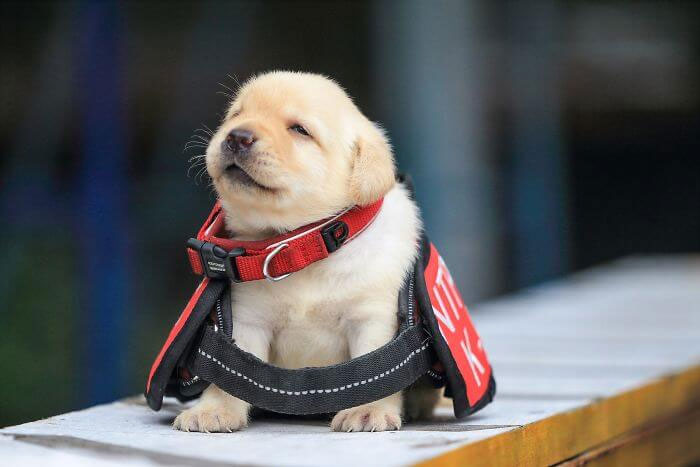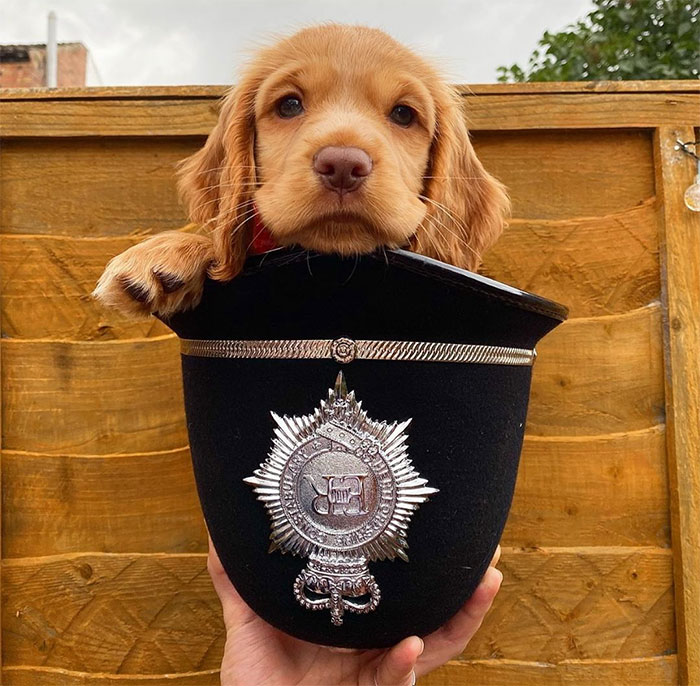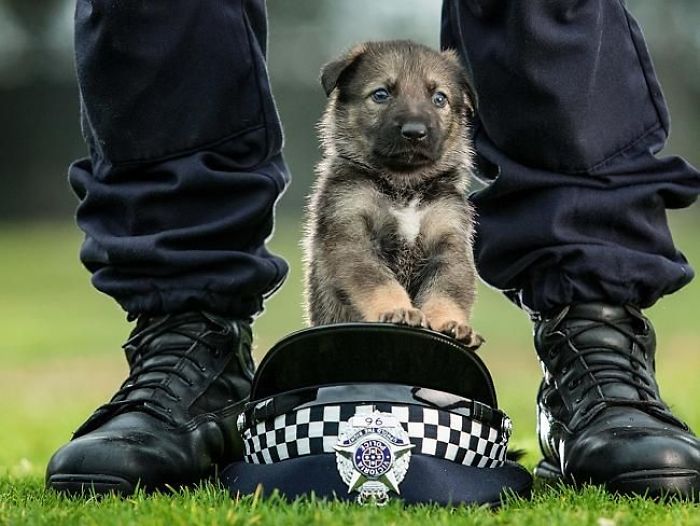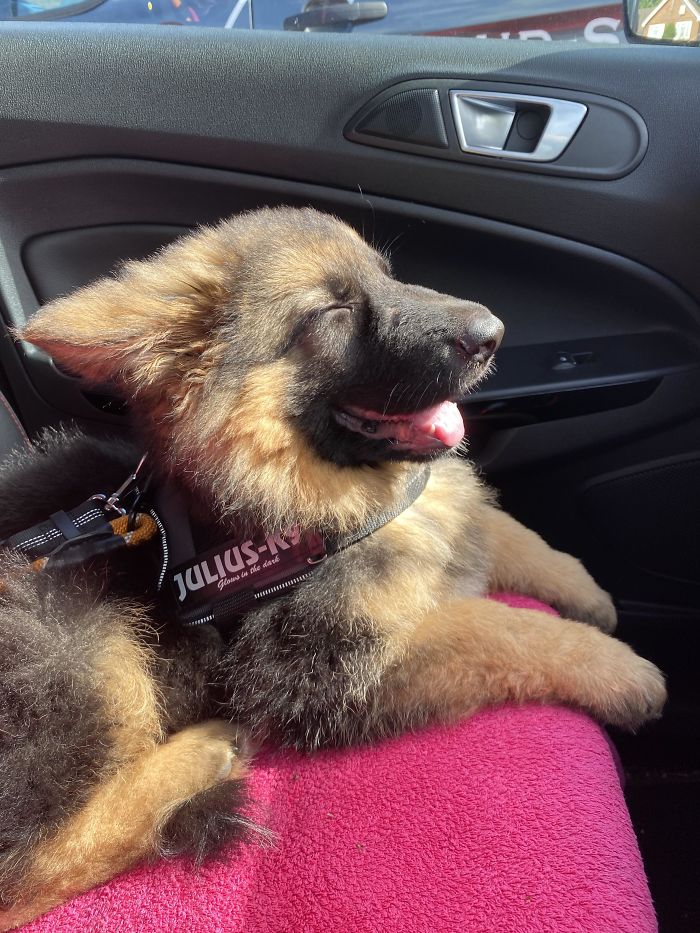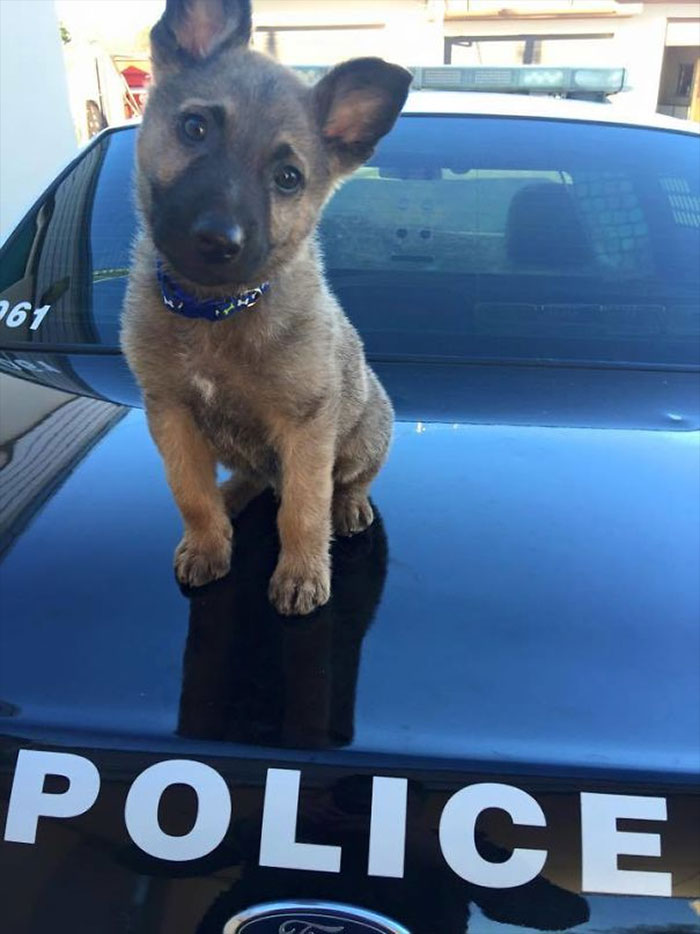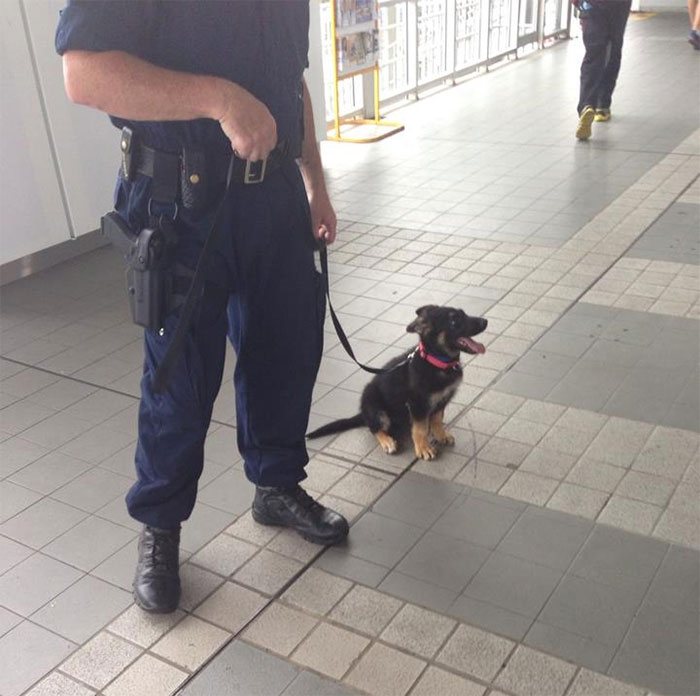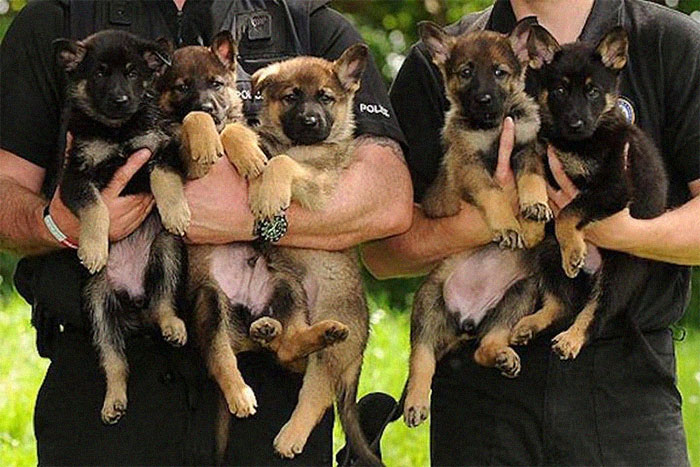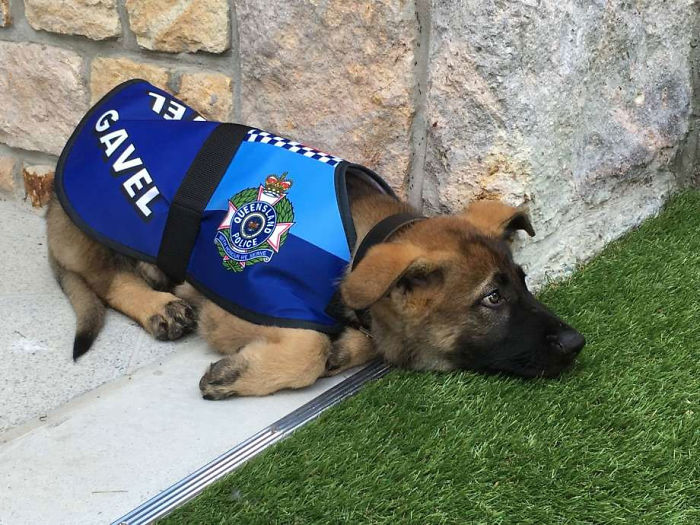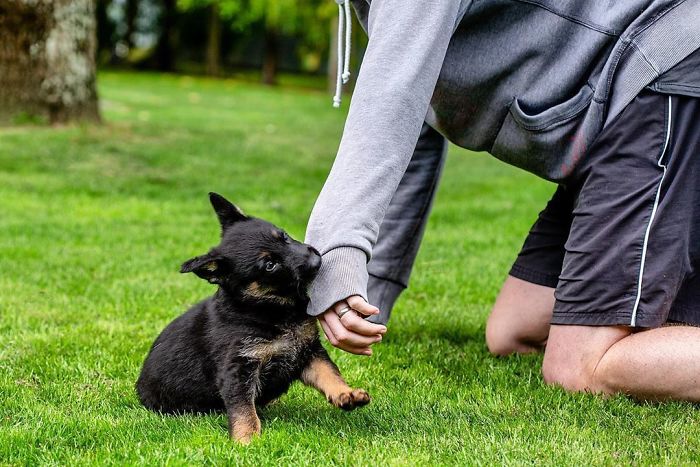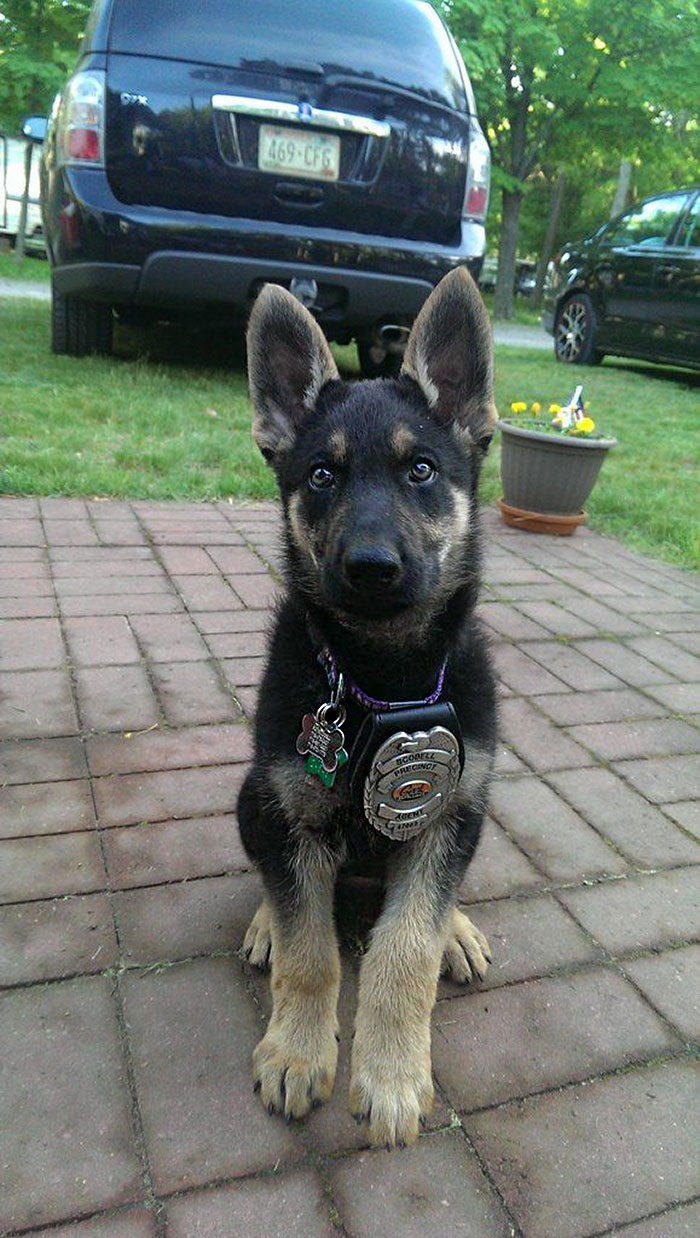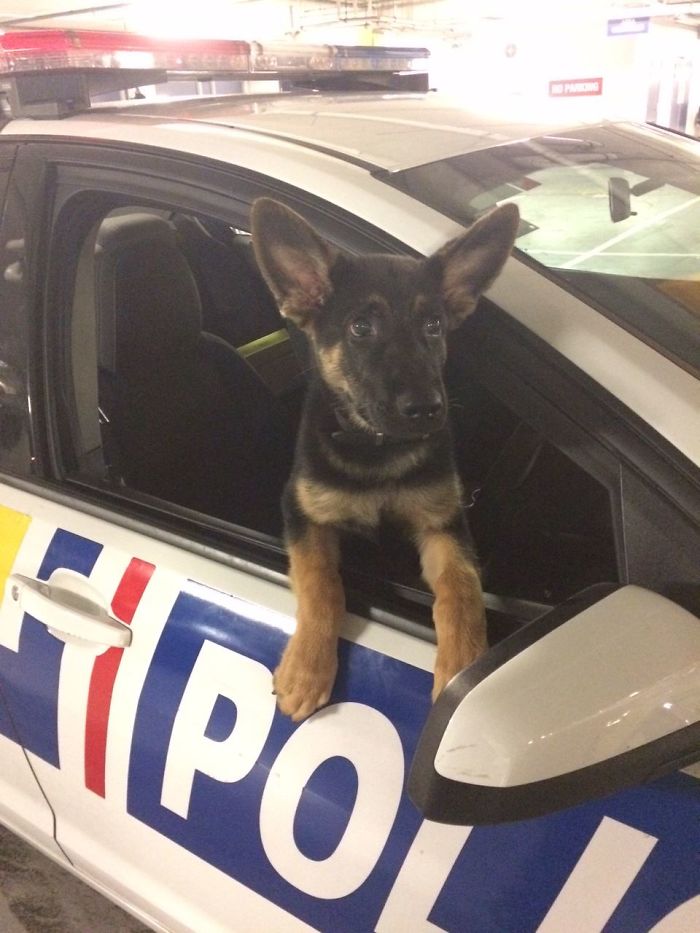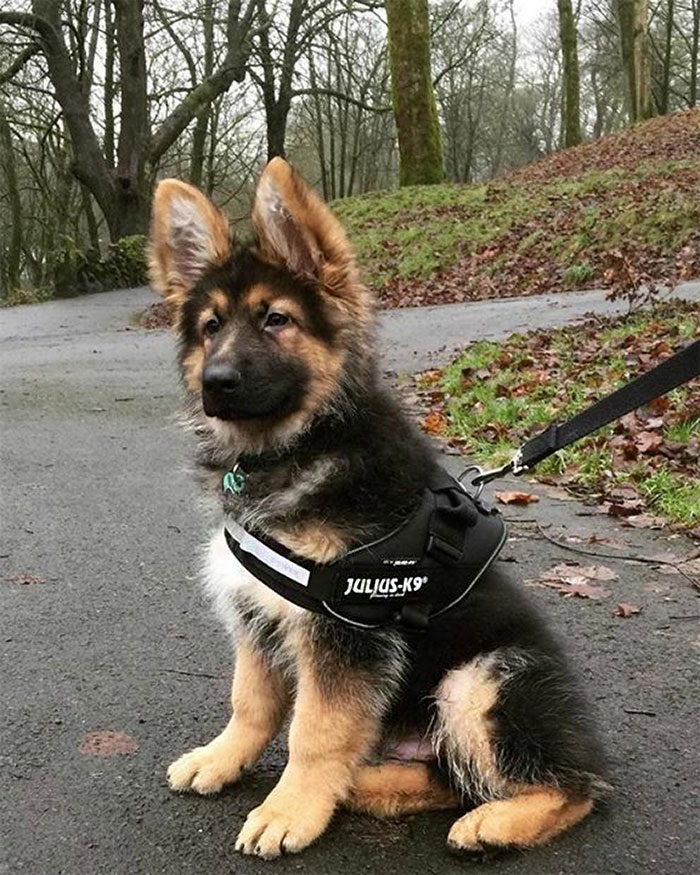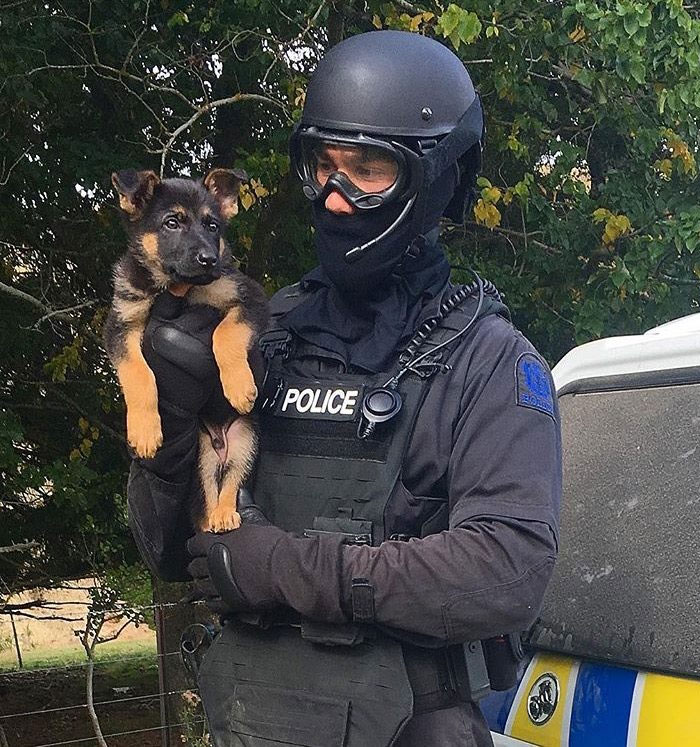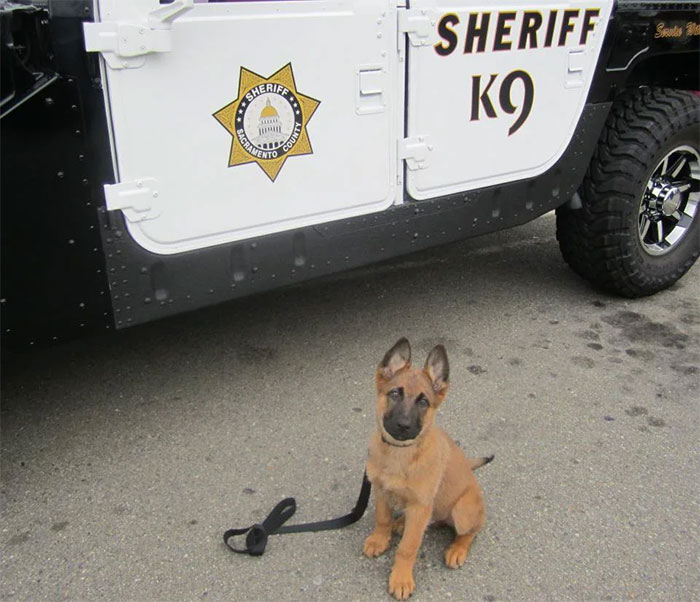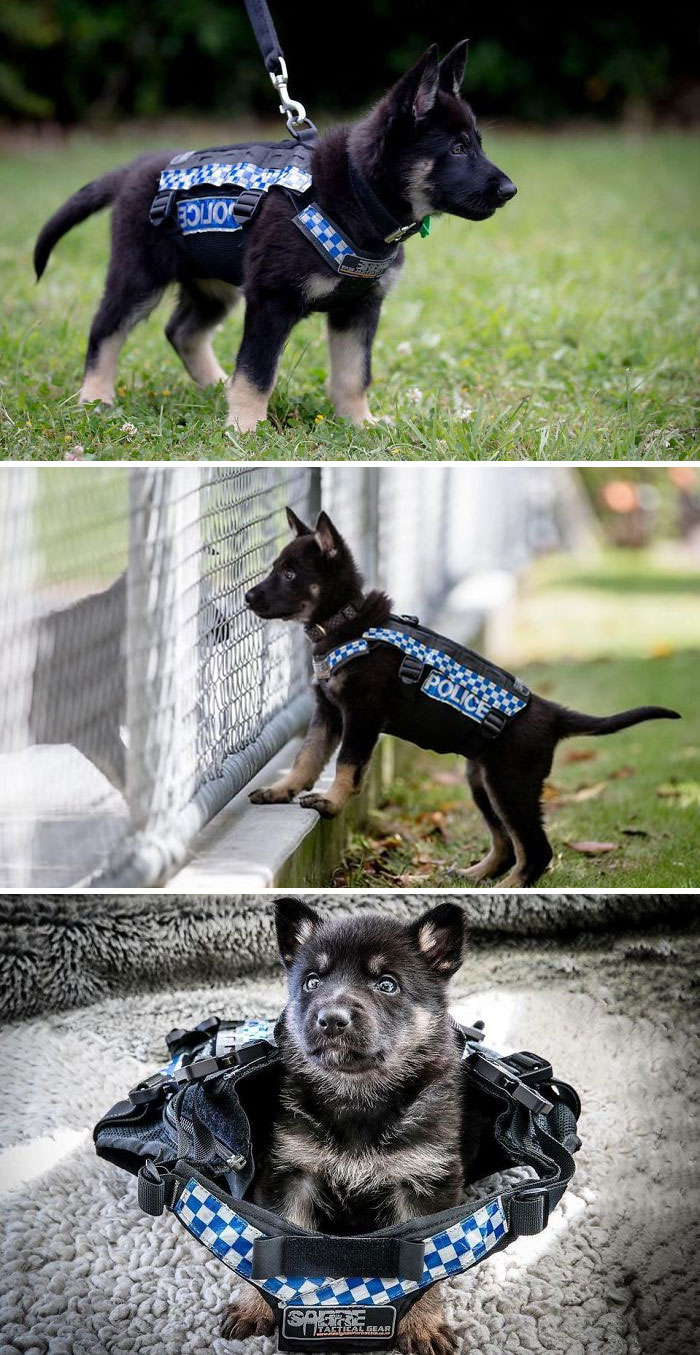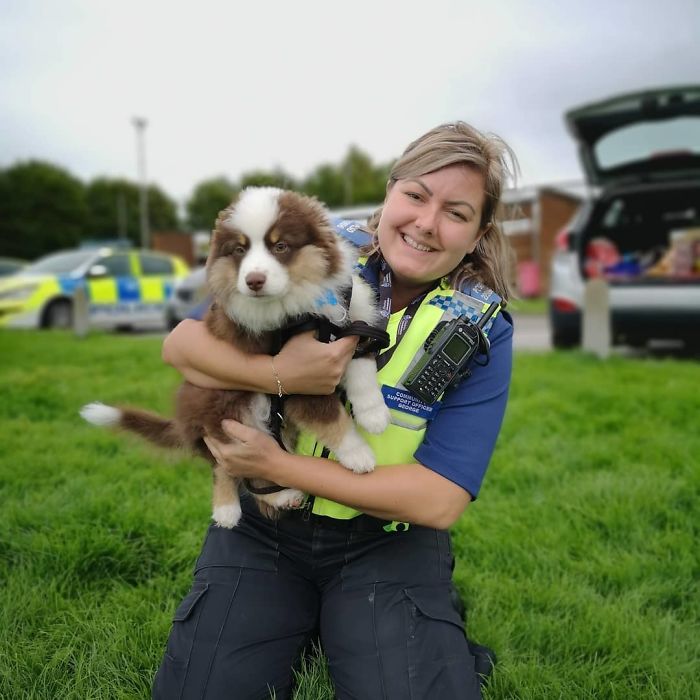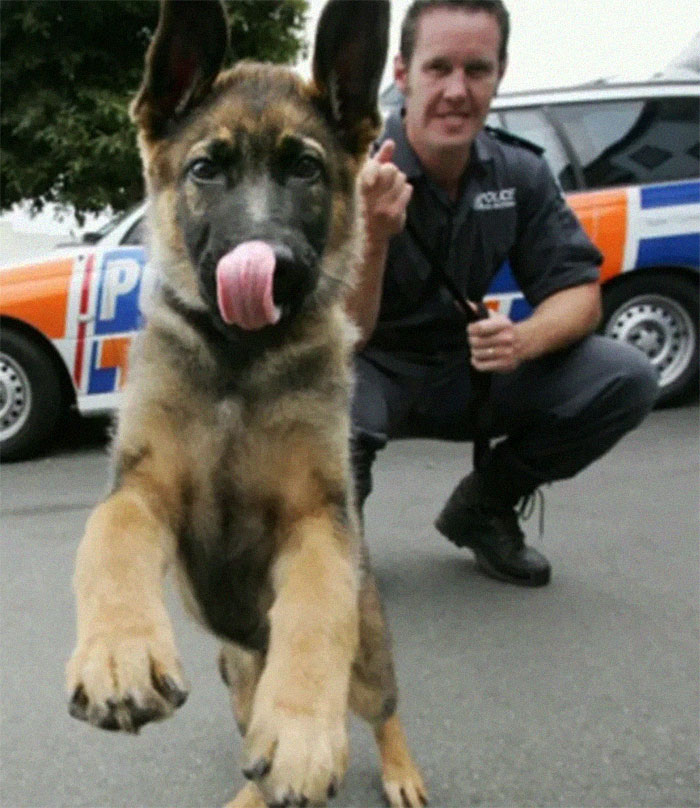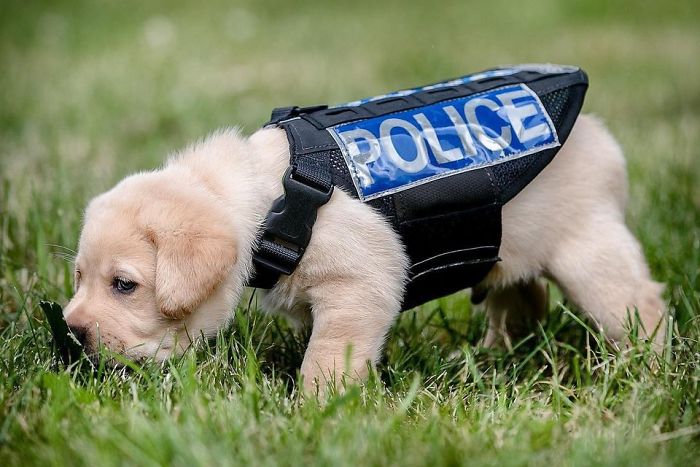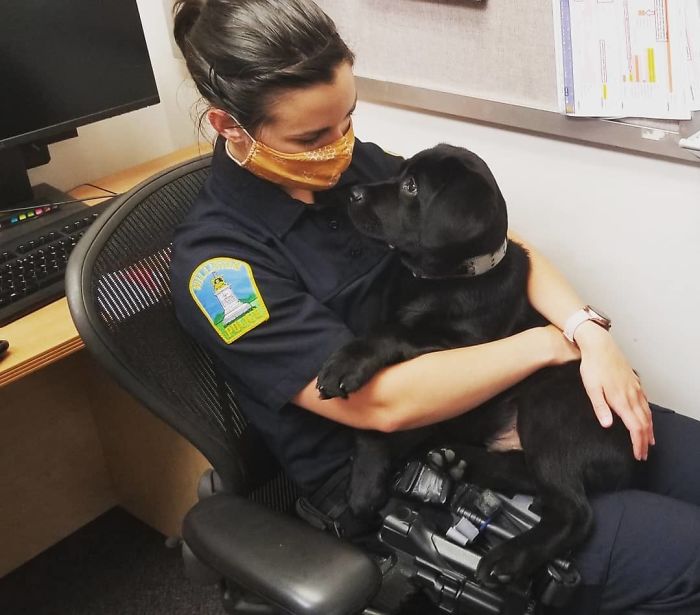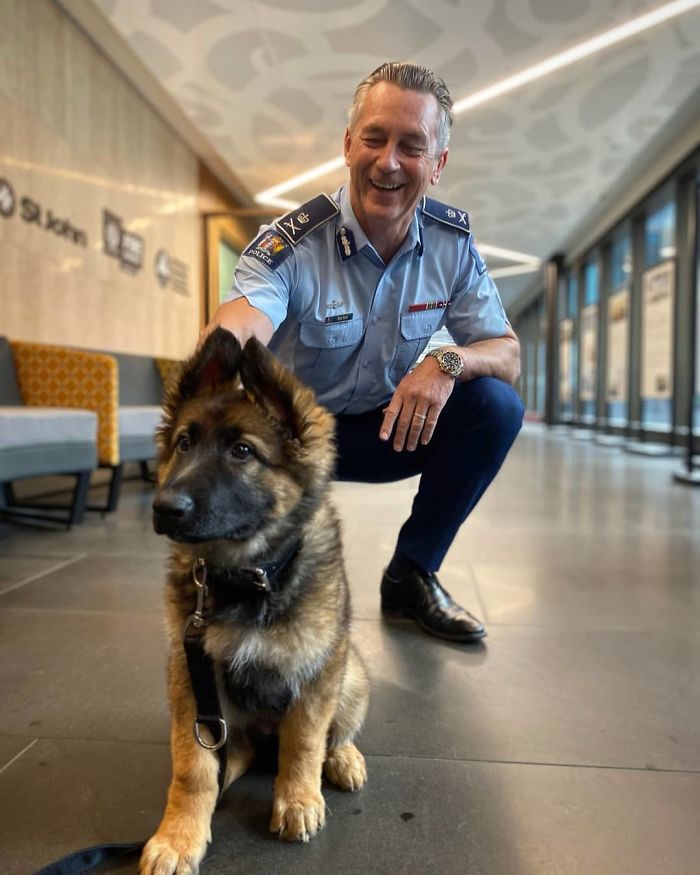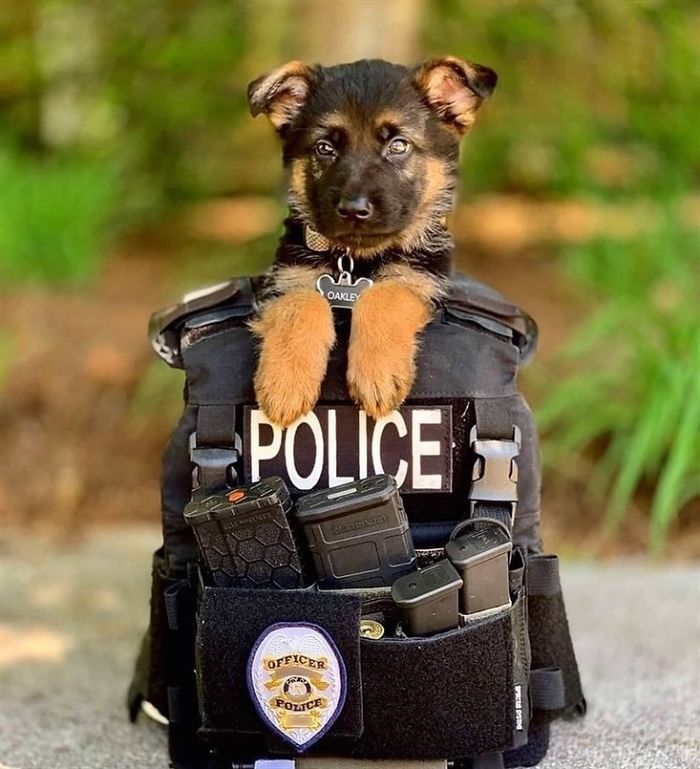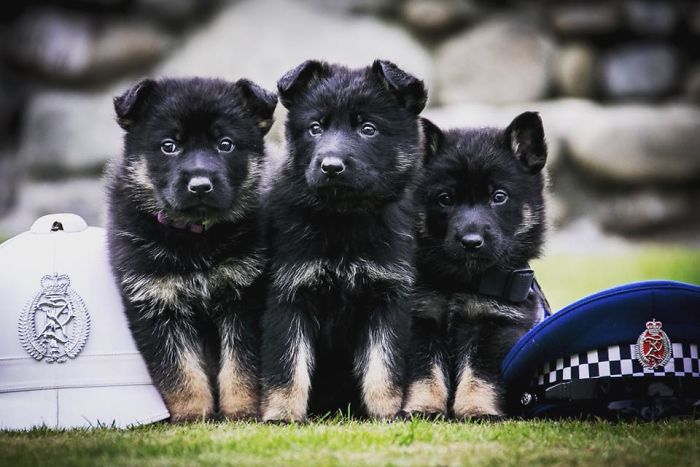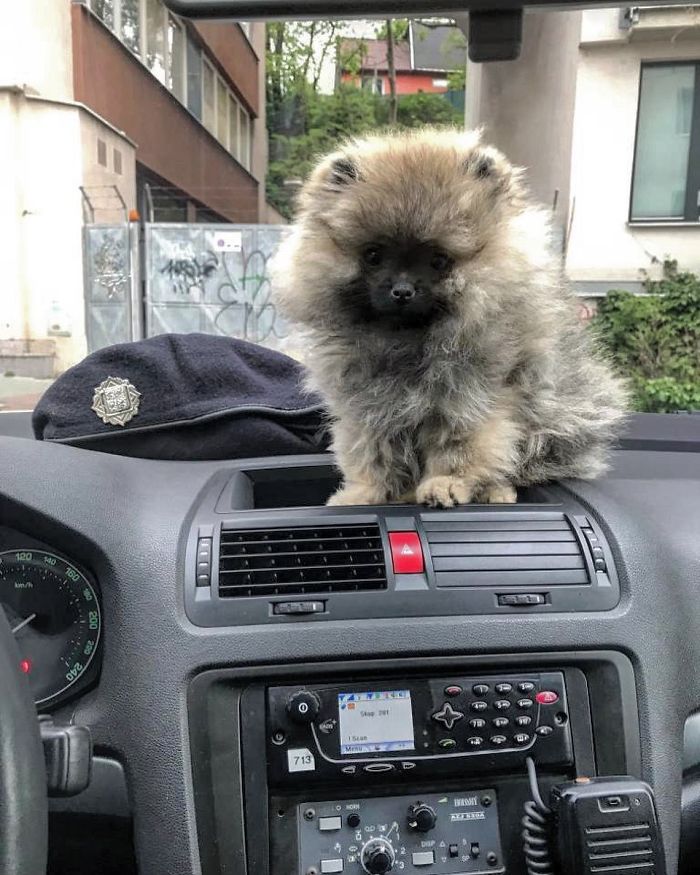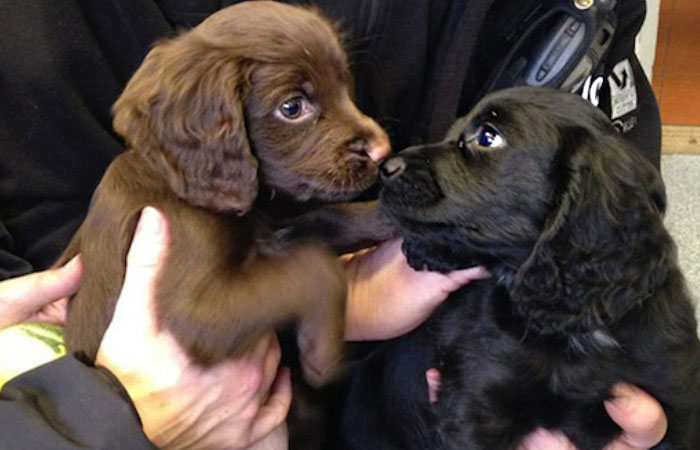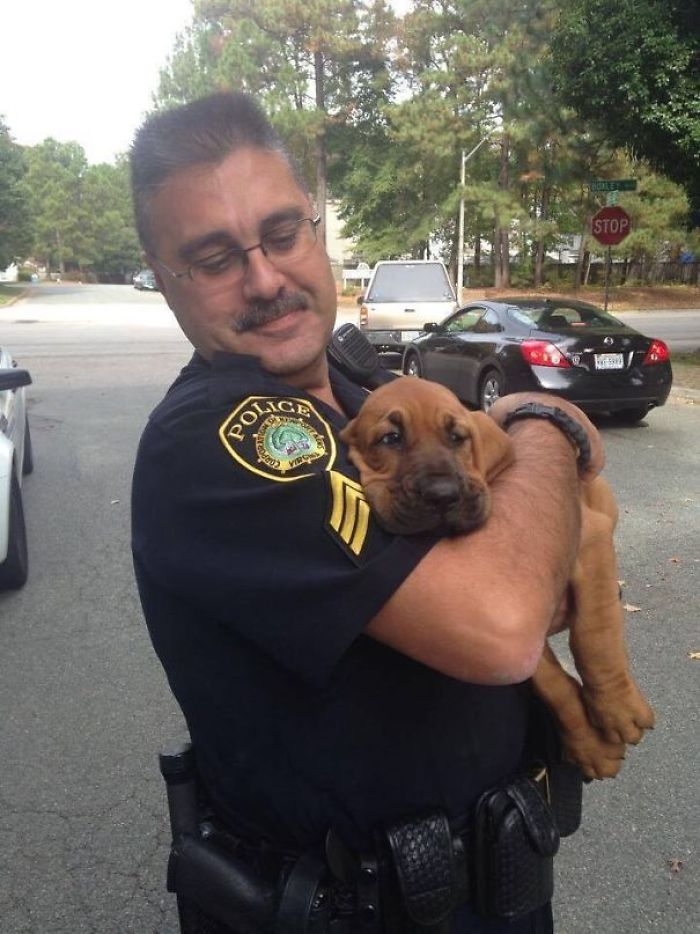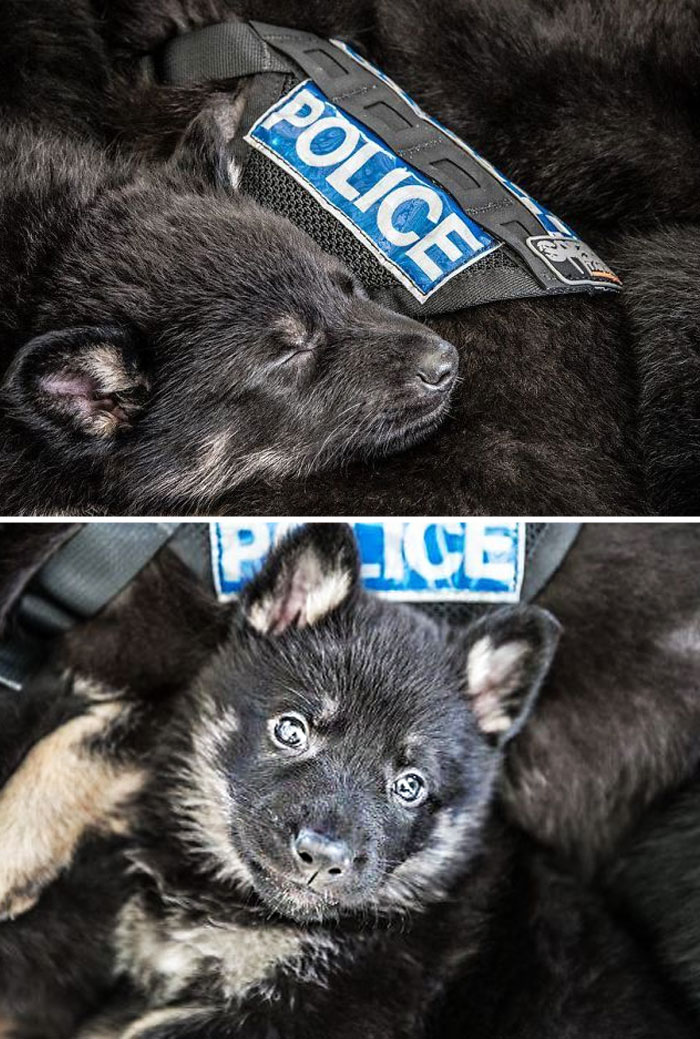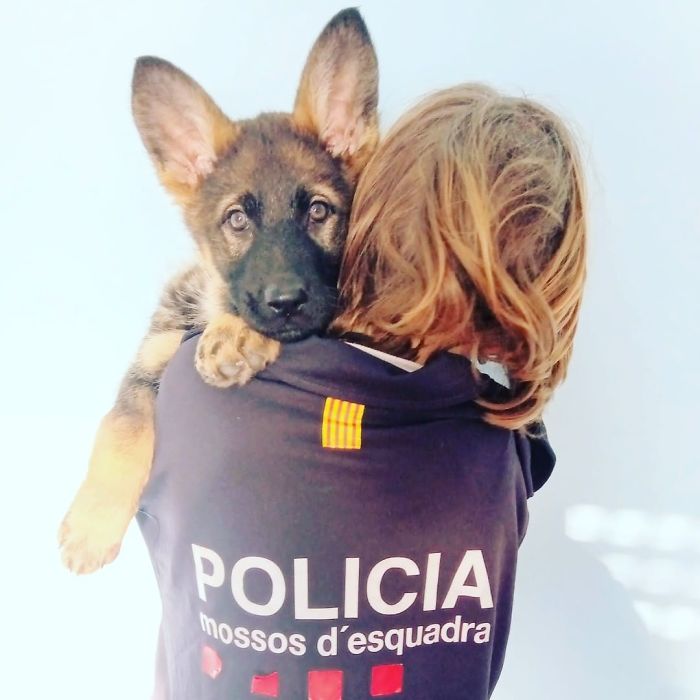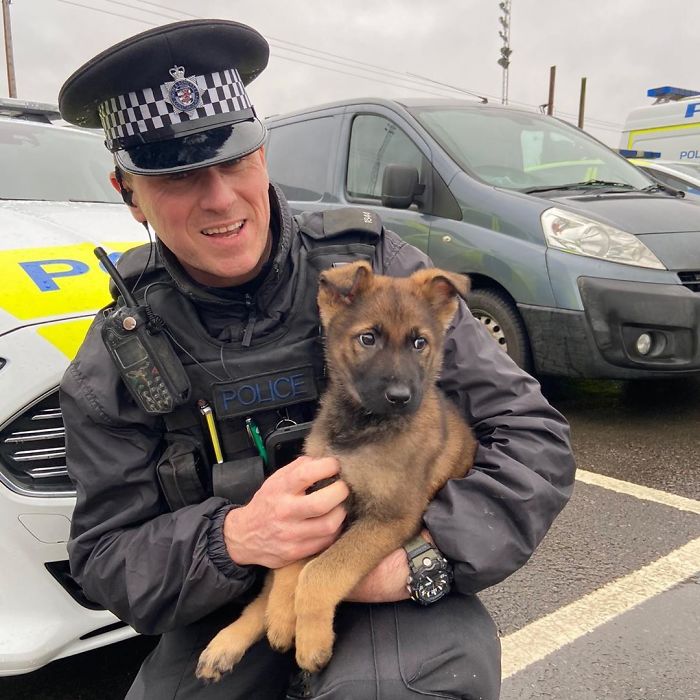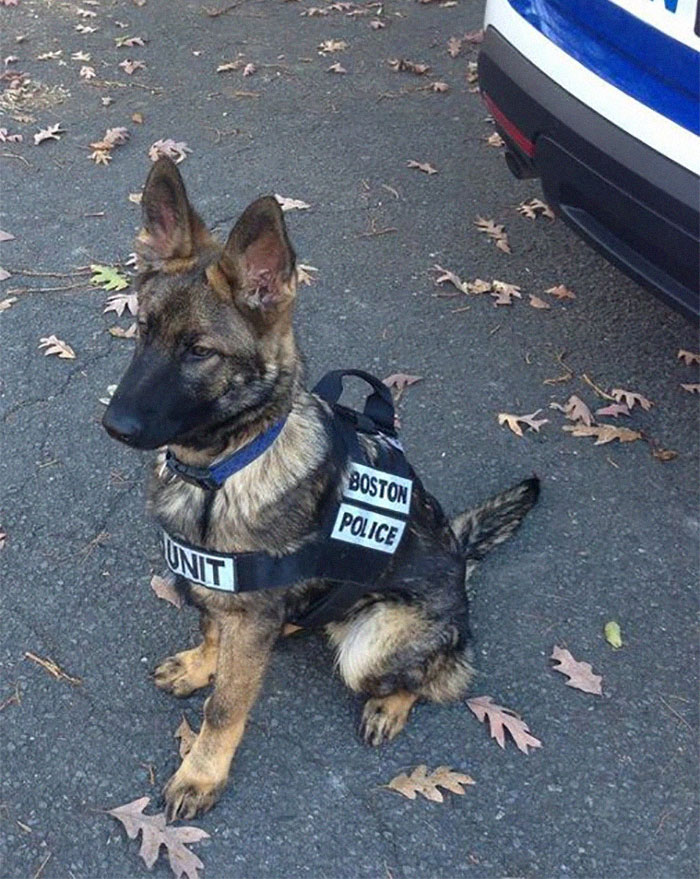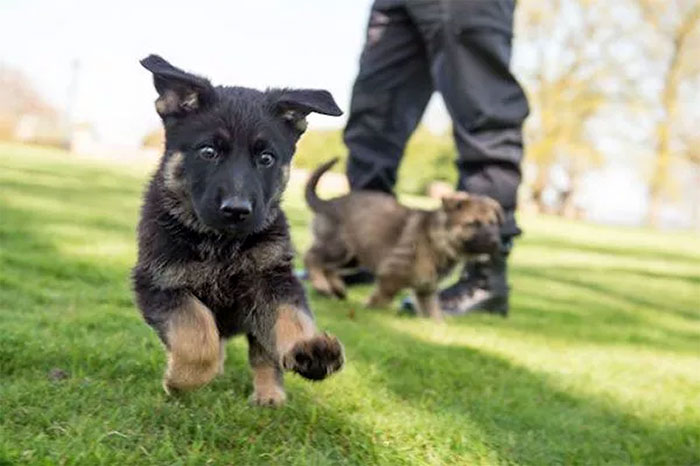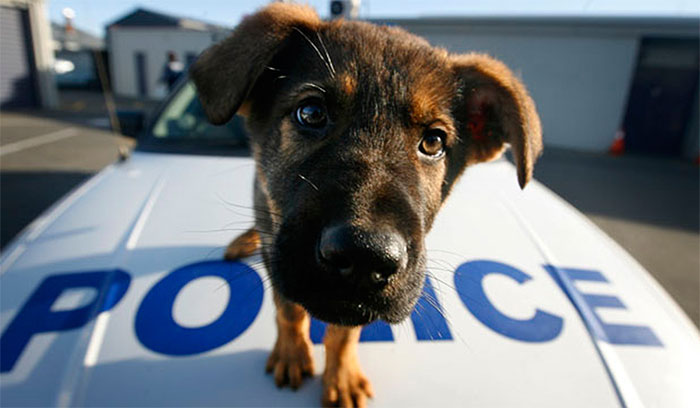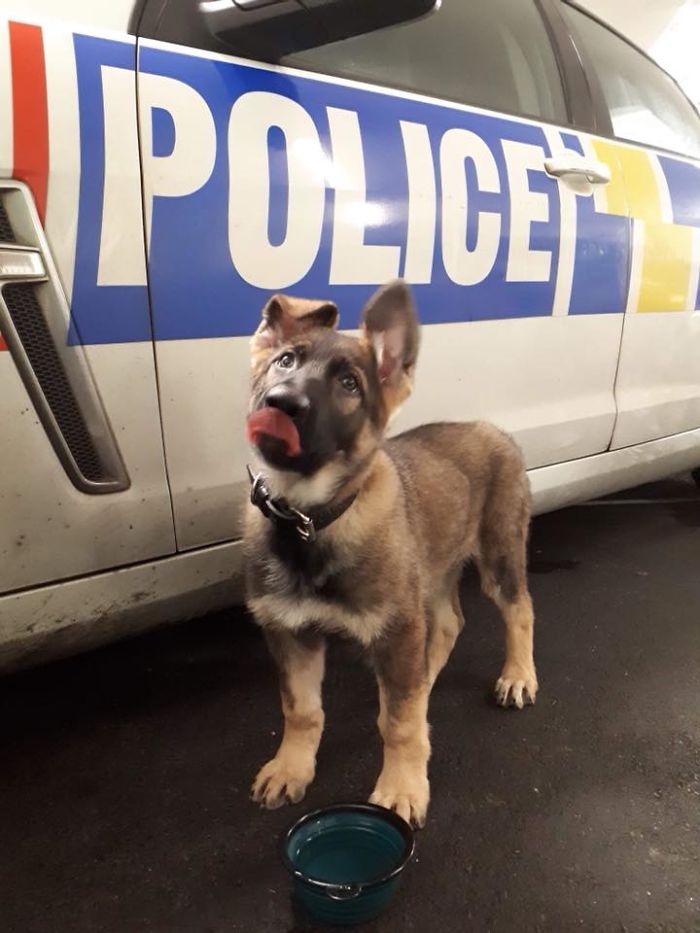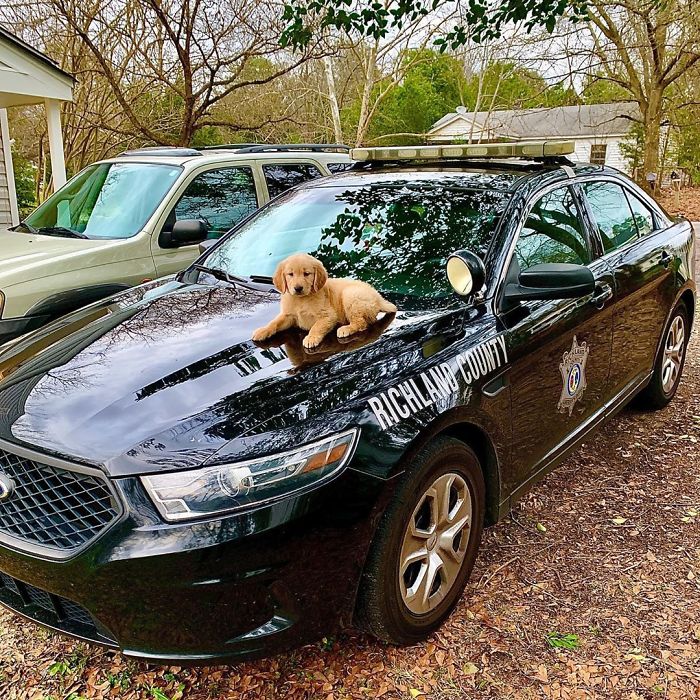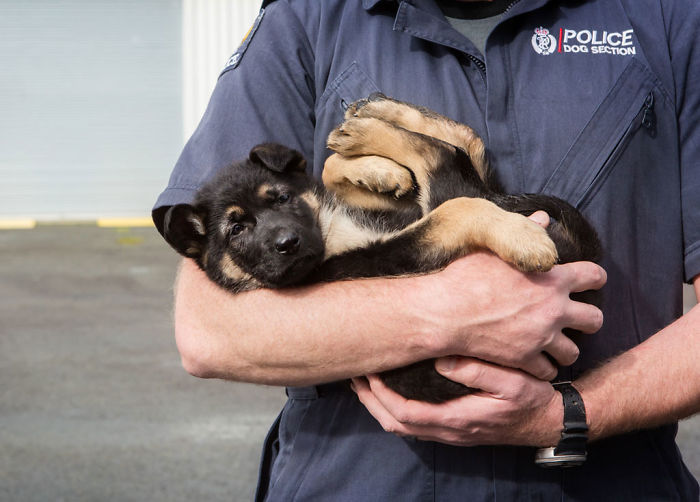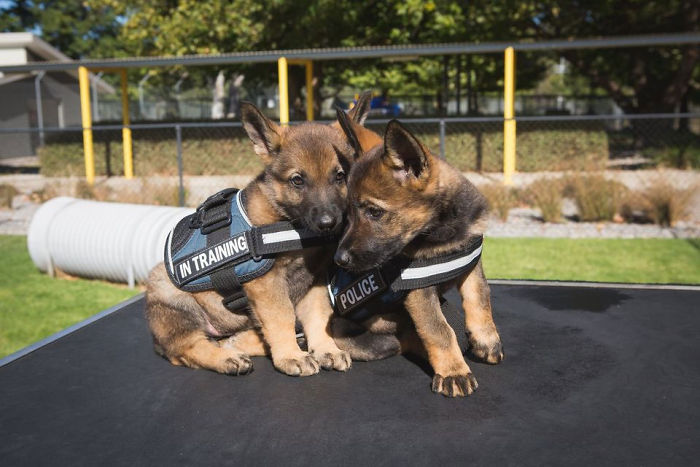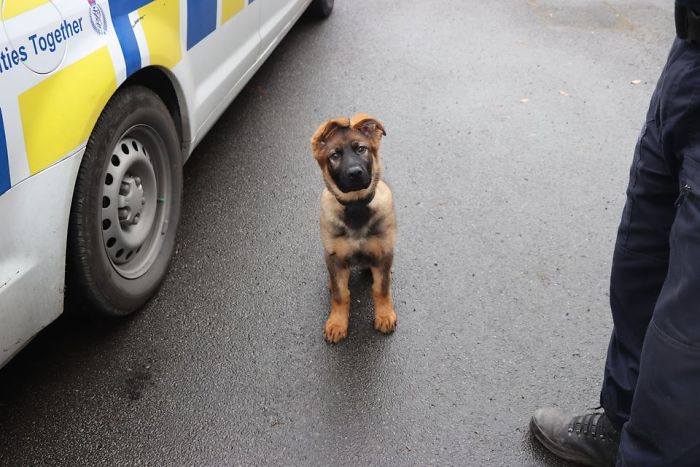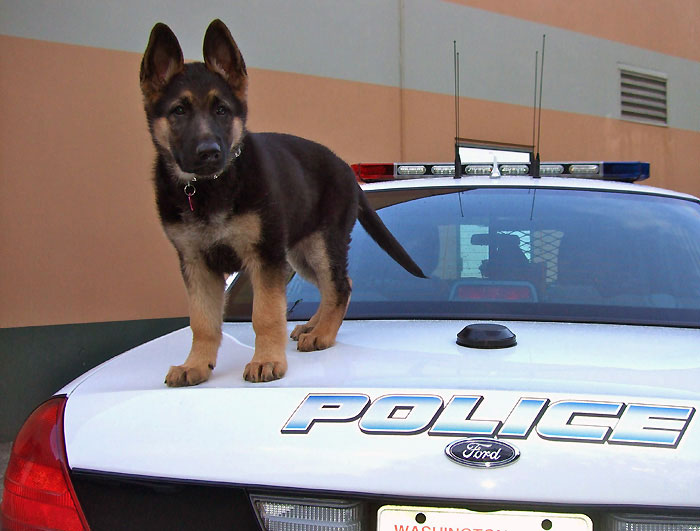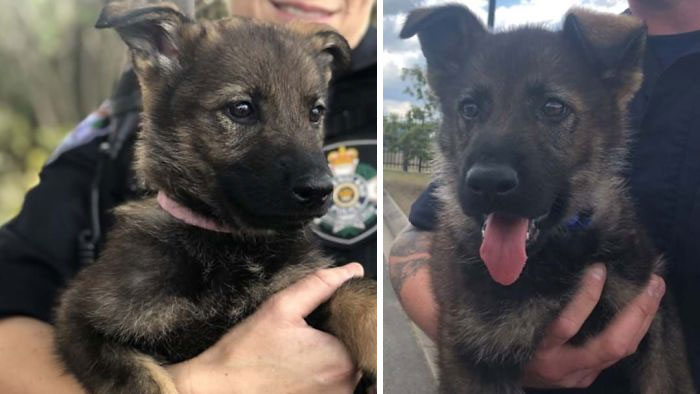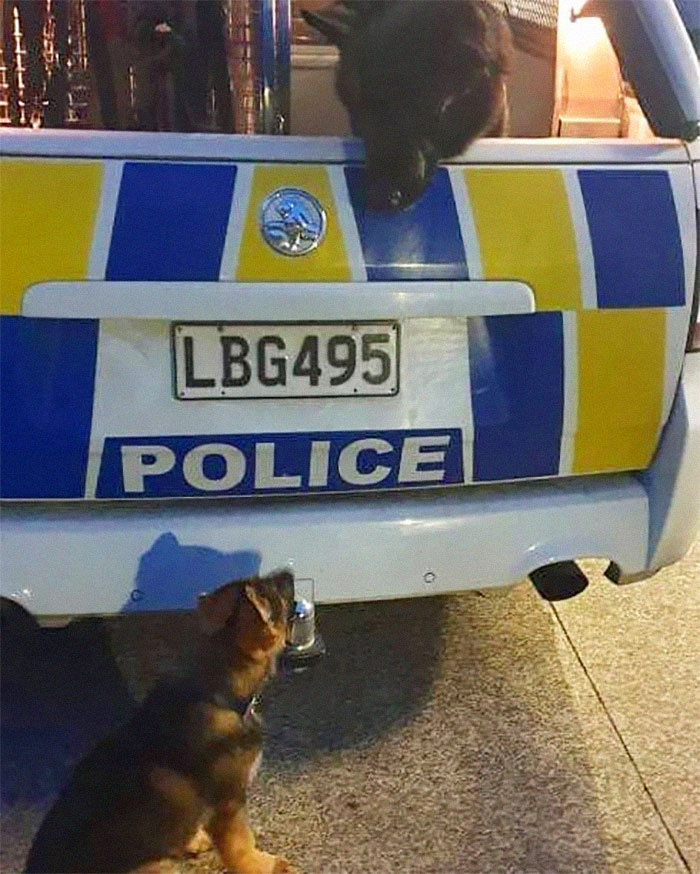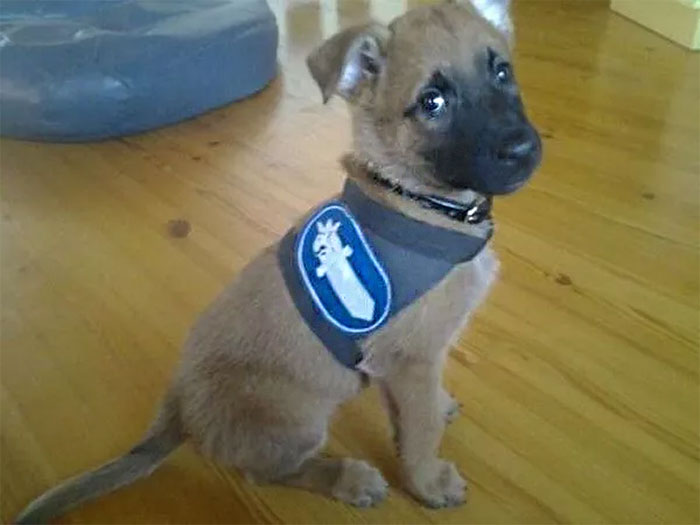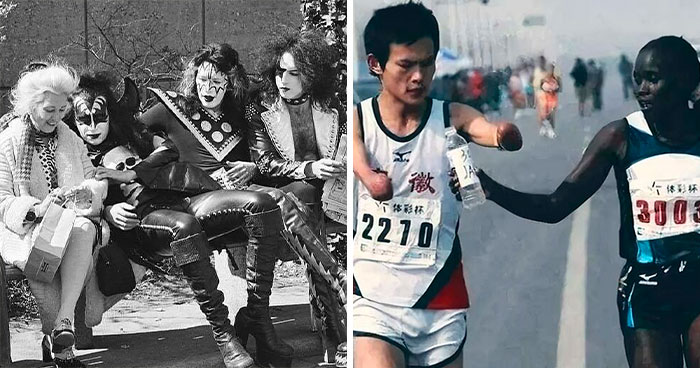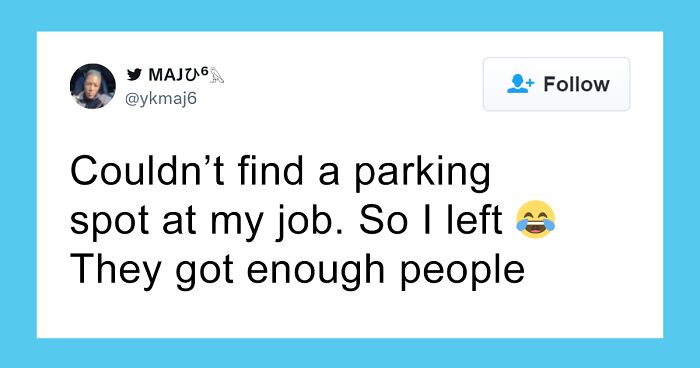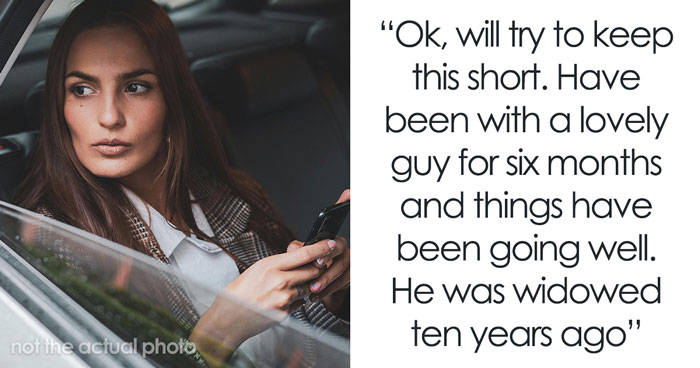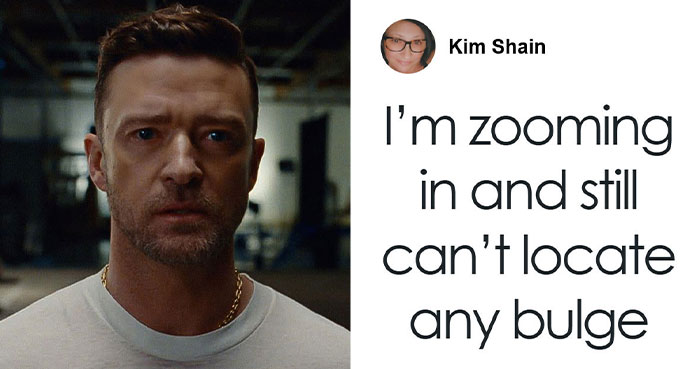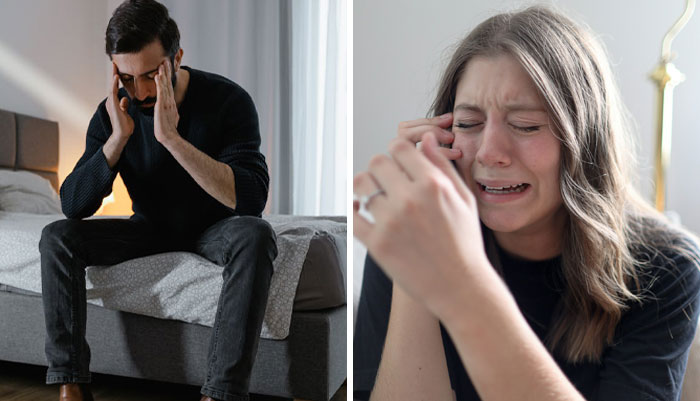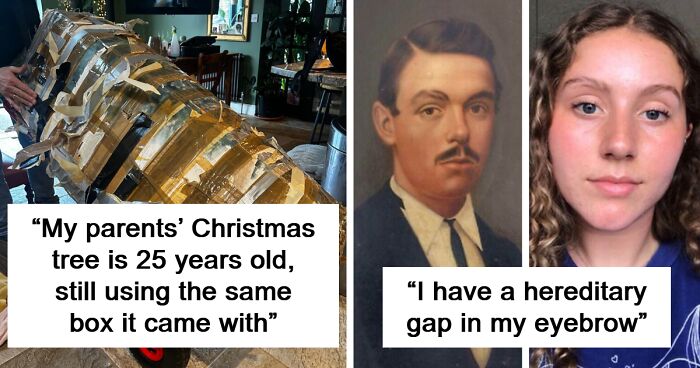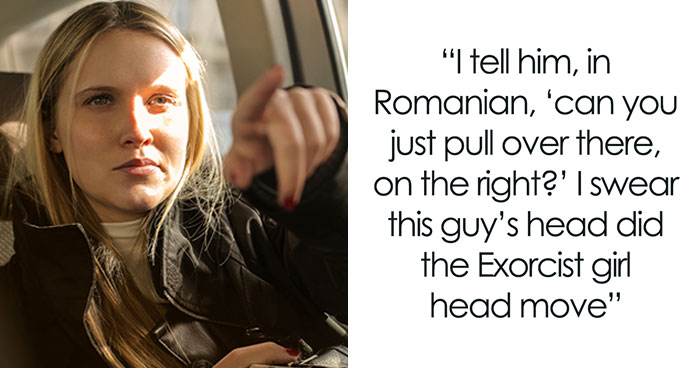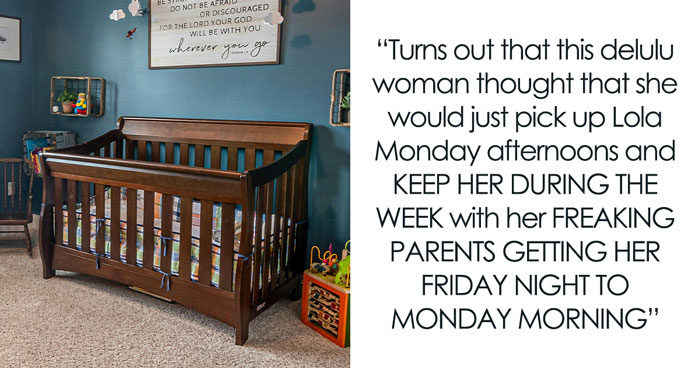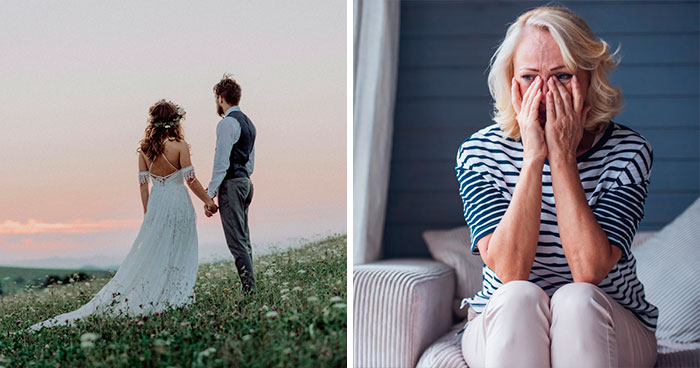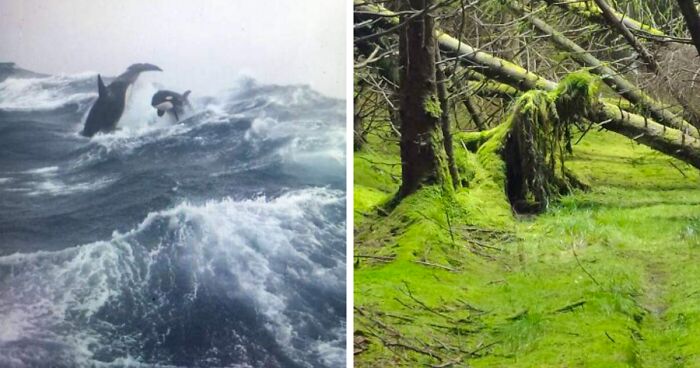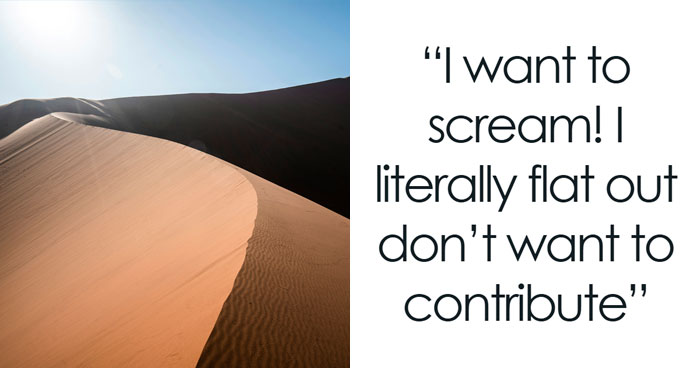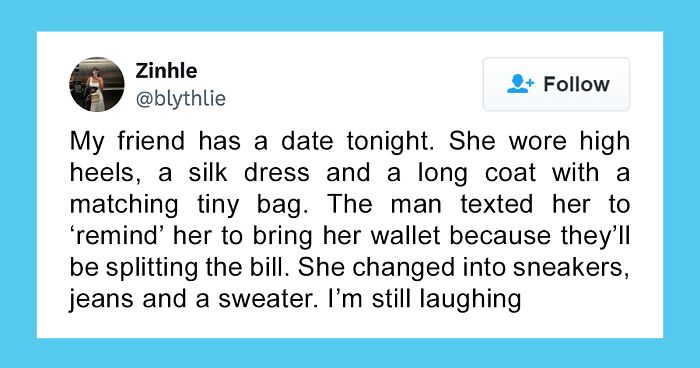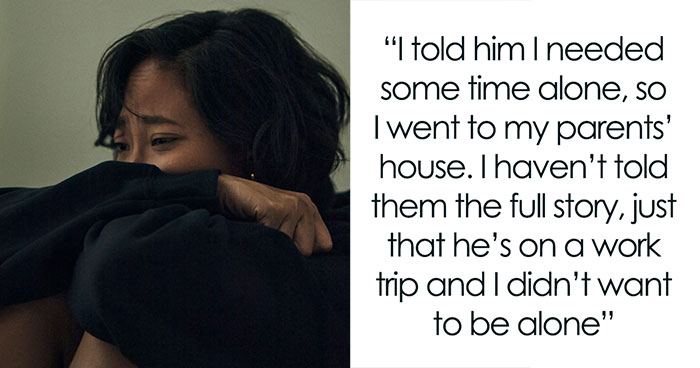Dogs have served in law enforcement since the Middle Ages. Today, the most popular breeds in the force are German Shepherds, Belgian Malinois, Dutch Shepherds, and occasionally mixes of these breeds. Rottweilers, Doberman Pinchers, and Bouvier de Flandres are rare, but they also contribute sometimes.
However, before these pooches become the trusty, life-saving K9s they are destined to be, they have to go through vigorous training. And as tough as they try to look on their first day -- just like any first-grader -- they can't shake off their adorable nature.
Here's an exclusive Bored Panda list of heart-melting photos of police pups reporting for duty. Enjoy!
This post may include affiliate links.
Police dogs live with their handlers while on duty and after retirement, meaning they bond for life with their partners and will always be part of the police family. Their handler feeds, grooms, and takes care of the dog like it is their own pet.
But your pup can grow up to be a fit, well-behaved dog without joining the police, too. It will, however, require time and dedication from both of you. Dog behaviorist Nick Jones MA told Bored Panda that, "As well as focusing on basic dog training commands in the beginning, it is essential that the owner focuses upon creating a dog that is polite, mannerly and can accept control and direction from the handler."
OK, so you got your first puppy and you want to teach him a thing or two. When should you start? The sooner the better, actually. "On the basis that a new puppy is acquired at 8 weeks of age, training can commence from the very beginning," Jones said. "Not in a formal sense, more along the lines of implementing short sits, waits and an introduction to good manners and polite behavior towards humans and other animals. Training programs evolve over time and as the dog matures and becomes more settled, the owner can increase the challenges set for the dog."
It's important to remember that dog training is as much of a challenge for the person as it is for their four-legged companion. Mistakes are inevitable; you have to have the right mindset to push through them. "It's good to have a plan, but all plans are subject to minor setbacks and your dog will have no appreciation for the plan that you have and so we are to an extent at the dog's mercy in terms of how quickly we can make progress in terms of training and behavior," Jones explained.
Don’t worry. Pupper will grow into both their ears and their harness—-and in the blink of an eye!
"Like people, all dogs are different and adjustments made as we progress are part and parcel of the journey. Try not to let setbacks or a seeming lack of progress deter you, as it's normal to experience pauses and then surges in your dog's ability to listen and take directions."
"In summary, focus on good manners and polite behavior as your very first port of call, and then gradually layer in increasingly difficult training challenges in keeping with your dog's progress as it develops," he said.
You and your dog probably won't catch a lot of bad guys, but the relationship the two of you will create through training will be just as rewarding as serving together.
Awww, that little face! I just want to scoop this pupper up and never let go!
First time I ever wanted to bribe a cop. Bacon treat officer?
OK, with that face and head tilt, this one would be useful for interrogations. I mean, only a true hardened psychopath wouldn’t just melt and confess to everything upon seeing all that cuteness!
That’s an awfully big badge for pupper to grow into—-and they will!
"He went straight for the front seat of the pawlice car."
You can tell this pup’s part of an intelligent breed—-they’re already checking out their surroundings!
I don't think I have the discipline to train a police dog. I would just want to lay down and roll around with them.
I don't think I have the discipline to train a police dog. I would just want to lay down and roll around with them.

 Dark Mode
Dark Mode 

 No fees, cancel anytime
No fees, cancel anytime 


